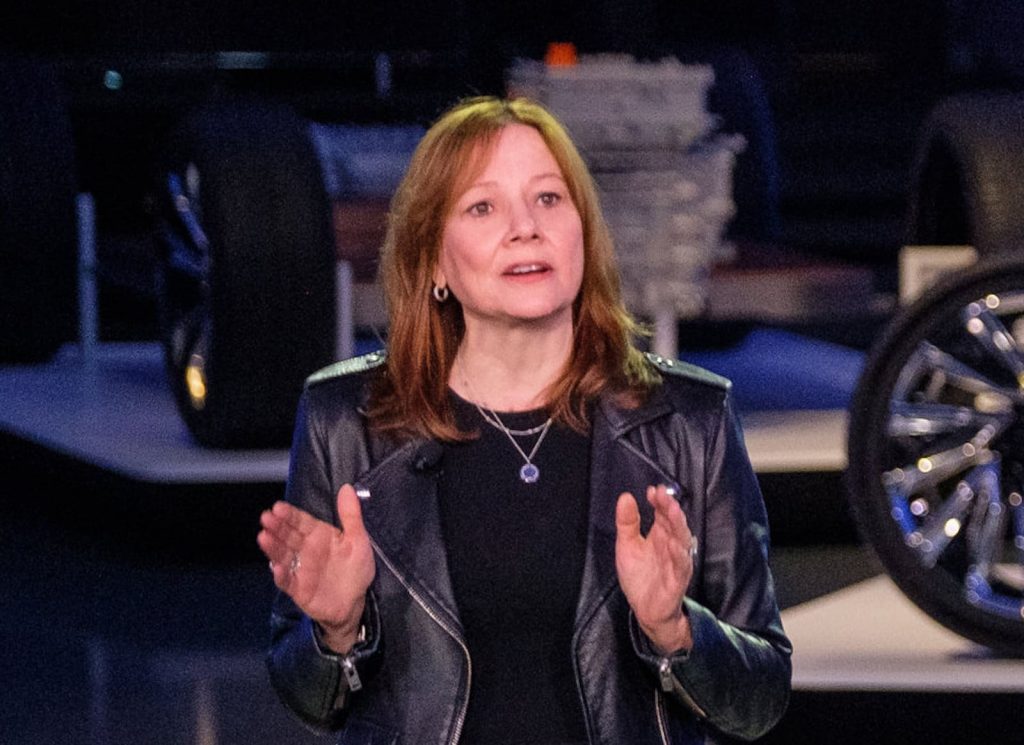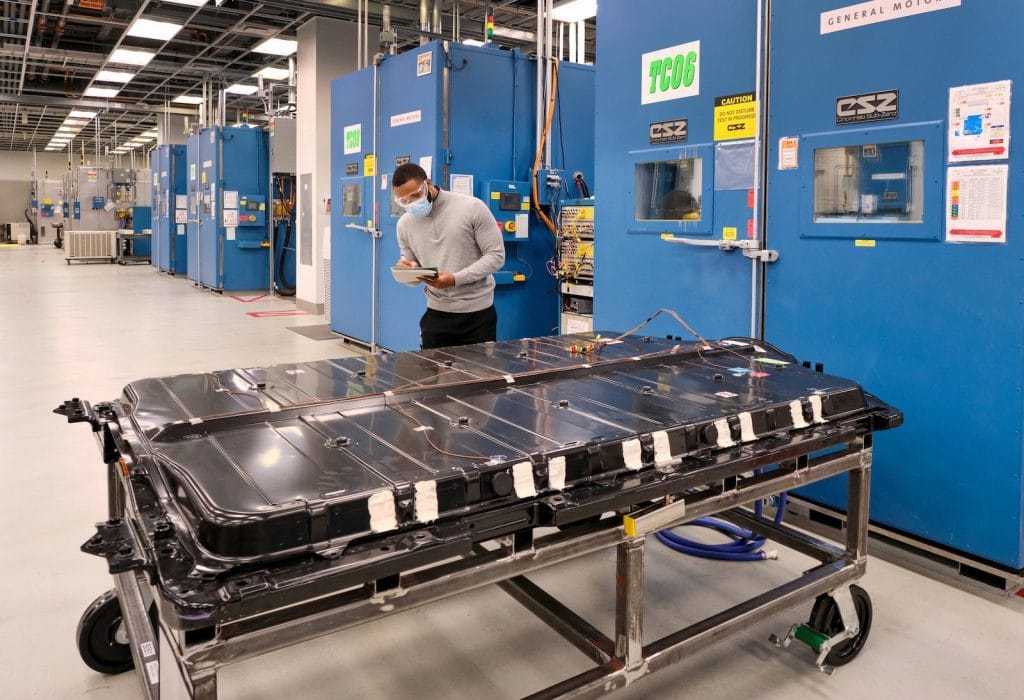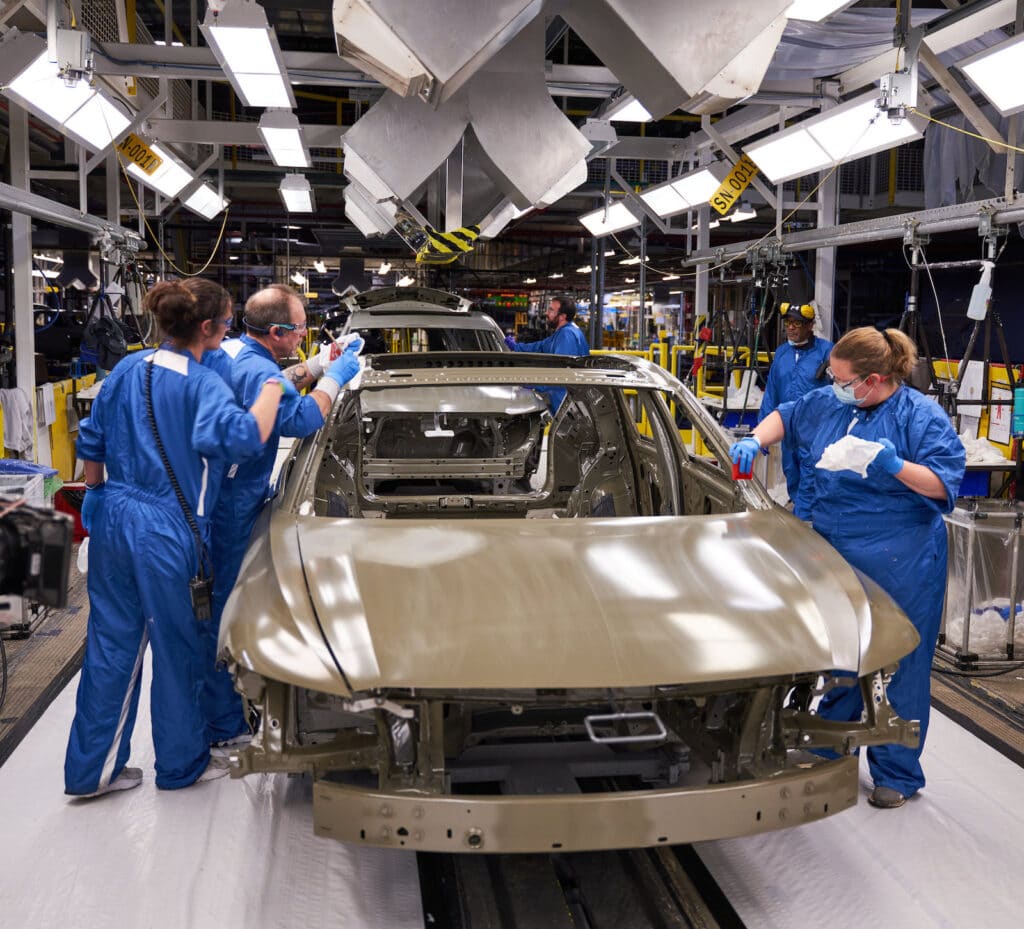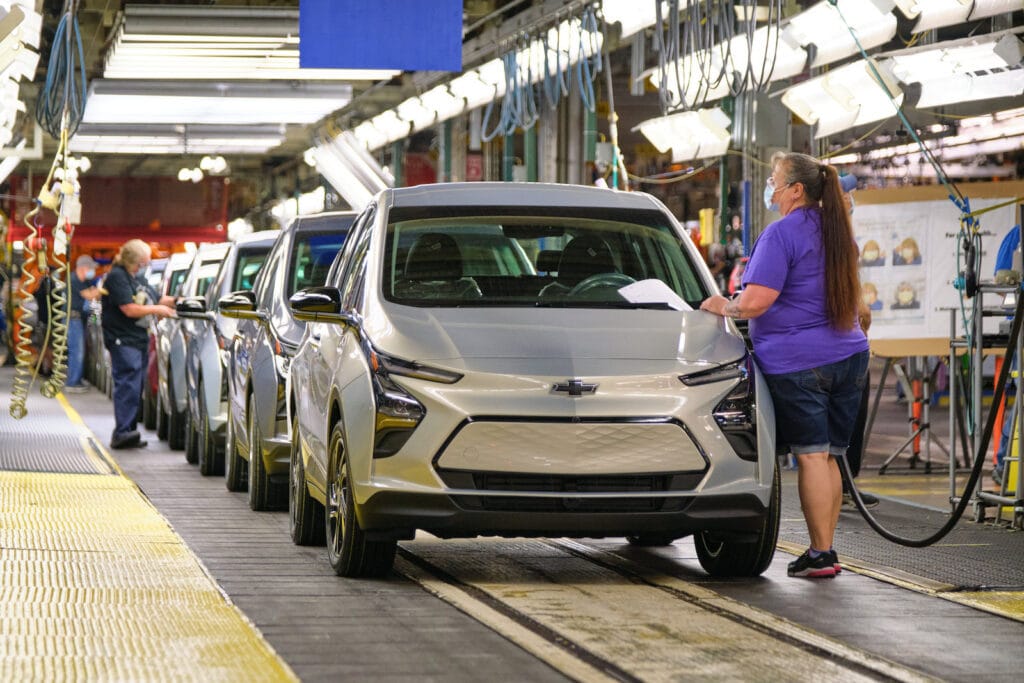General Motors will miss its previously announced EV production targets by at least six months, CEO Mary Barra said during a conference call with investors.

Like most automakers, GM has struggled to keep its factories running over the last year due to ongoing supply chain issues — notably including a lack of semiconductors. Barra signaled there were several reasons for the slow ramp up of EV production, in particular, with a shortage of lithium-ion batteries being a key problem.
“It’s taken a little bit longer,” Barra said during a third-quarter earnings call, “from the battery pack assembly” process.
“A little longer than expected”
The automaker launched its first long-range battery-electric vehicle, the Chevrolet Bolt, in 2016. It has been expanding its line-up over the last year, with an emphasis on new products, such as the GMC Hummer EV and Cadillac Lyriq, relying on its all-new Ultium battery technology. The automaker has announced plans for four separate battery plants in North America so far, with the first going into operation in September.

But it has taken “a little longer than expected” to bring in the roughly 1,000 workers needed at the Warren, Ohio facility. And that has complicated other challenges GM has faced getting production of Ultium batteries up to speed, Barra indicated.
As a result of this “slightly lower launch of cell and pack production,” said Barra, it will take the automaker through “the first half of 2024” to meet a target of rolling out 400,000 battery-electric vehicles using the new Ultium technology. The original goal was to meet that number by the end of 2023.
GM has not yet replied to a request for comment by TheDetroitBureau.com. Reuters was the first to note that the automaker would fall short of its initial EV production goal.
Aggressive plans
GM is trying to position itself as a leader in the battery-electric vehicle market — though it faces stiff competition from the likes of Ford, Volkswagen, Hyundai and EV segment leader Tesla.

The largest of the Detroit automakers has laid out plans to introduce 30 all-electric models by 2025, although some of those will not be offered in the U.S. It has also outlined a target of halting production of vehicles using internal combustion engines entirely by 2035.
After a slow start, GM launched the Hummer pickup late last year. It has since rolled out the Cadillac Lyriq crossover and is preparing an assortment of other models, including a Hummer SUV. Chevrolet will debut an all-electric version of its Silverado pickup early in 2023, followed by EVs based on its Equinox and Blazer SUVs. GMC this month revealed the Sierra SUV coming in 2024, and the brand reportedly is working on a smaller Hummer line. The Buick brand will introduce its first EV before mid-decade, as well.
A backlog of orders could face harsh realities
Potential buyers have responded positively to GM’s plans. The automaker claims to have about 100,000 reservations for the Hummer EV alone, something GMC brand boss Duncan Aldred last week said would take as much as two years to fulfill.

How quickly GM can resolve its battery problems is unclear, though it’s by no means the only automaker facing such a challenge. Stellantis officials warned earlier this year that a shortage of batteries could set back industry plans. Officials with Tesla and Rivian have issued similar warnings.
According to Sam Abuelsamid, principal auto analyst at Guidehouse Insights, the industry will need to increase battery production by more than tenfold through mid-decade, to around 500 gigawatt-hours, to meet its collective EV plans for the U.S. market alone. A number of new plants are already in construction. But manpower issues could pose a challenge. So could the need for raw materials, said Abuelsamid, including lithium, nickel and cobalt.
Buyers take to EVs
GM hopes to get its battery production problems under control as it opens up more plants — the second set to come on line in 2024. It has set a goal of reaching production of 1 million EVs in North America by 2025.
Demand for battery-electric vehicles has accelerated rapidly. They accounted for barely 1% of the U.S. new vehicle market by the end of 2019. That approached 5% during the first quarter of 2022. And GM’s internal numbers showed EVs accounting for about 7.6% of the market in August. Estimates run as high as 20% by 2025, though Bank of America auto analyst John Murphy cautioned that it could fall short of that number due various factors, including EV pricing. Battery shortages could also set back industry targets.








When your sales are setting records with 90% ICE mix and expect close to 80% with similar profits the next year, why change the course? At least it won’t take two decades to make a profit like Tesla.
GM seems to think it will conquer the EV market and I am very skeptical when they have very little EV’s in the market so far and many are months down the road. Besides the questions if GM buyers will even buy into an EV vehicle. GM is clearly putting all its eggs in one basket, and I think maybe this is going to backfire on them.